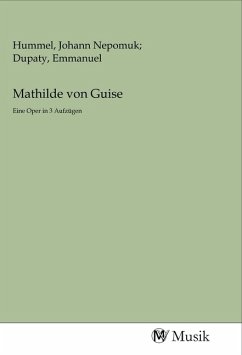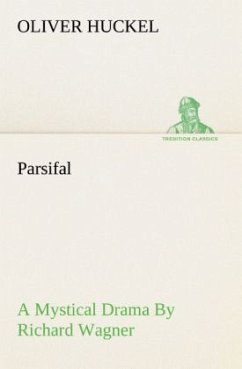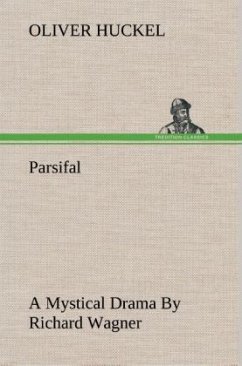
Richard Wagner to Mathilde Wesendonck
Versandkostenfrei!
Versandfertig in 6-10 Tagen
39,90 €
inkl. MwSt.

PAYBACK Punkte
0 °P sammeln!
"My dear Kläre,I promised you something more detailed about the true causes of the serious step in which you now see me engaged. I will tell you what is needful, that you may also be able to refute any other gossip; toward which, however, I am most indifferent myself.What for six years past has supported, comforted, and strengthened me withal to stay by Minna's side despite the enormous differences of our character and disposition, is the love of that young gentlewoman who at first and for long approached me shyly, diffidently, hesitant and timid, but thereafter more and more decidedly and su...
"My dear Kläre,
I promised you something more detailed about the true causes of the serious step in which you now see me engaged. I will tell you what is needful, that you may also be able to refute any other gossip; toward which, however, I am most indifferent myself.
What for six years past has supported, comforted, and strengthened me withal to stay by Minna's side despite the enormous differences of our character and disposition, is the love of that young gentlewoman who at first and for long approached me shyly, diffidently, hesitant and timid, but thereafter more and more decidedly and surely. As there never could be talk between us of a union, our deep attachment took that wistful character which holds all base and vulgar thoughts aloof, and discerns its only source of gladness in the welfare of each other." [...]
These words from a letter Wagner send to his sister Clara Wolfram in 1858 will open this fantastic book about the relationship between Richard Wagner and Mathilde Wesendonck.
This book is a reprint of the original work from 1905.
I promised you something more detailed about the true causes of the serious step in which you now see me engaged. I will tell you what is needful, that you may also be able to refute any other gossip; toward which, however, I am most indifferent myself.
What for six years past has supported, comforted, and strengthened me withal to stay by Minna's side despite the enormous differences of our character and disposition, is the love of that young gentlewoman who at first and for long approached me shyly, diffidently, hesitant and timid, but thereafter more and more decidedly and surely. As there never could be talk between us of a union, our deep attachment took that wistful character which holds all base and vulgar thoughts aloof, and discerns its only source of gladness in the welfare of each other." [...]
These words from a letter Wagner send to his sister Clara Wolfram in 1858 will open this fantastic book about the relationship between Richard Wagner and Mathilde Wesendonck.
This book is a reprint of the original work from 1905.














